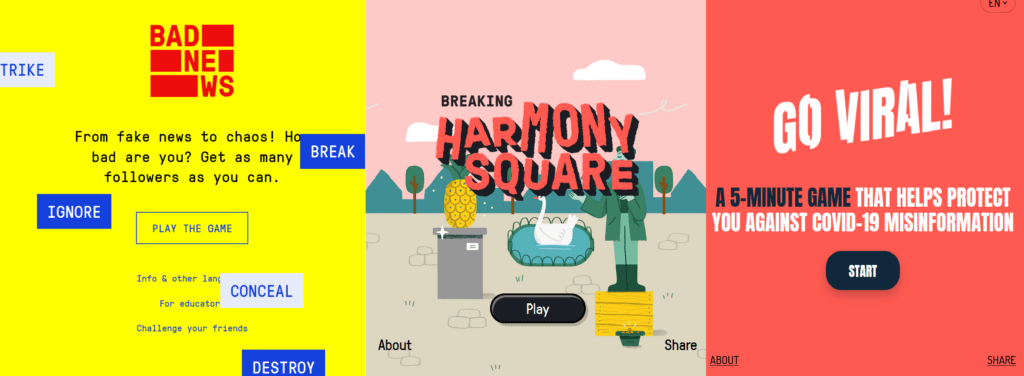A new set of online games holds promise for helping identify and prevent harmful misinformation from going viral.
Instead of fighting misinformation after it’s already spread, some researchers have shifted their strategy: they’re trying to prevent it from going viral in the first place, an approach known as “prebunking.” Prebunking attempts to explain how people can resist persuasion by misinformation. Grounded in inoculation theory, the approach uses the analogy of biological immunization. Just as weakened exposure to a pathogen triggers antibody production, inoculation theory posits that pre-emptively exposing people to a weakened persuasive argument builds people’s resistance against future manipulation.
Prebunking is being touted as A New Way to Inoculate People Against Misinformation. The idea is that one can inoculate people against the manipulation of misinformation. This strikes me as similar to how we were taught to “read” advertising in order to inoculate us to corporate manipulation. Did it work?
The Cambridge Social Decision-Making Lab has developed some games like the Bad News Game to build psychological resistance to misinformation.
That viruses and inoculation can be metaphors for patterns of psychological influence is worrisome. It suggests a lack of agency or reflection among people. How are memes not like viruses?
The Lab has been collaborating with Google’s Jigsaw on Inoculation Science which has developed the games and videos to explain misinformation.
